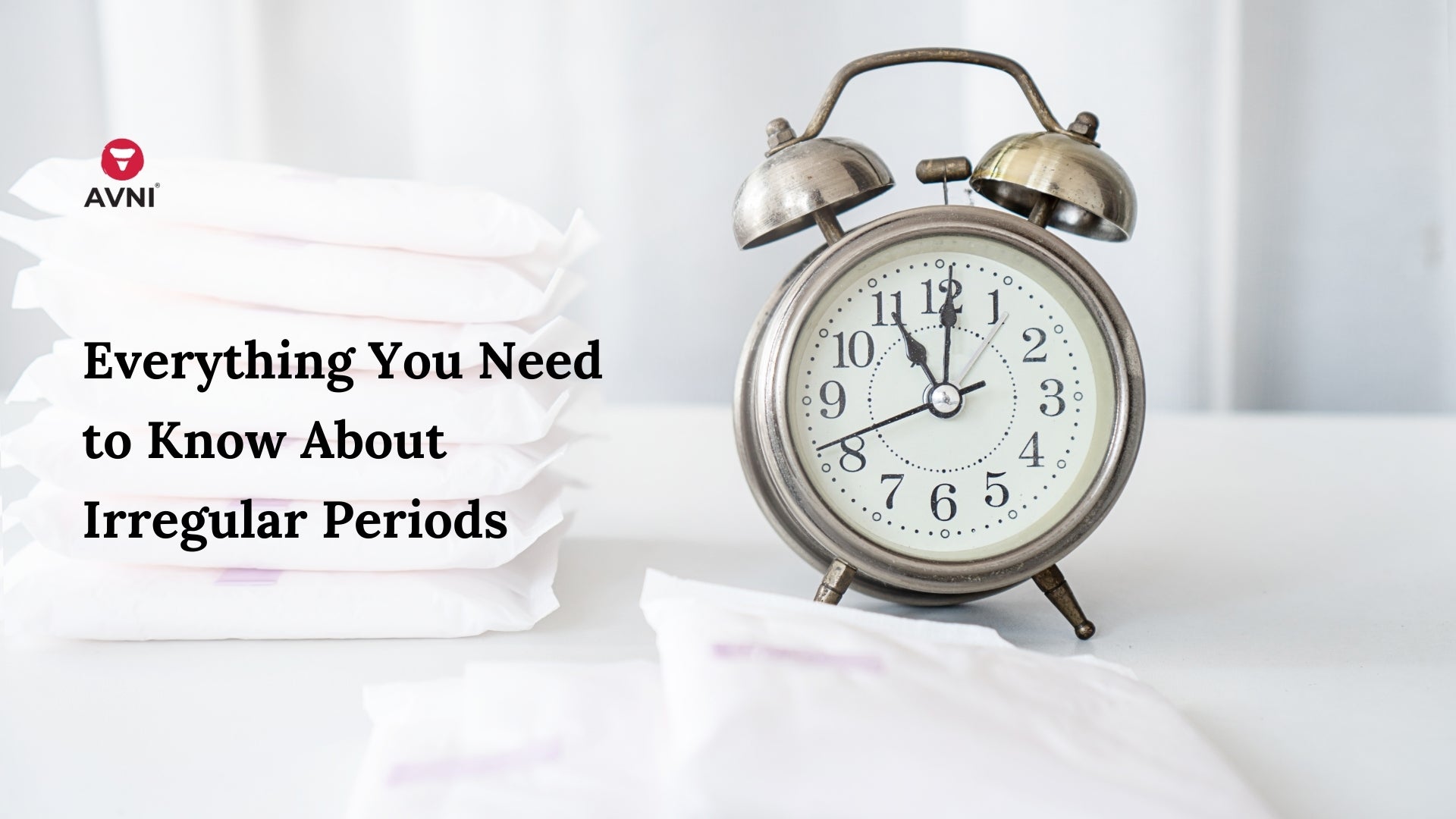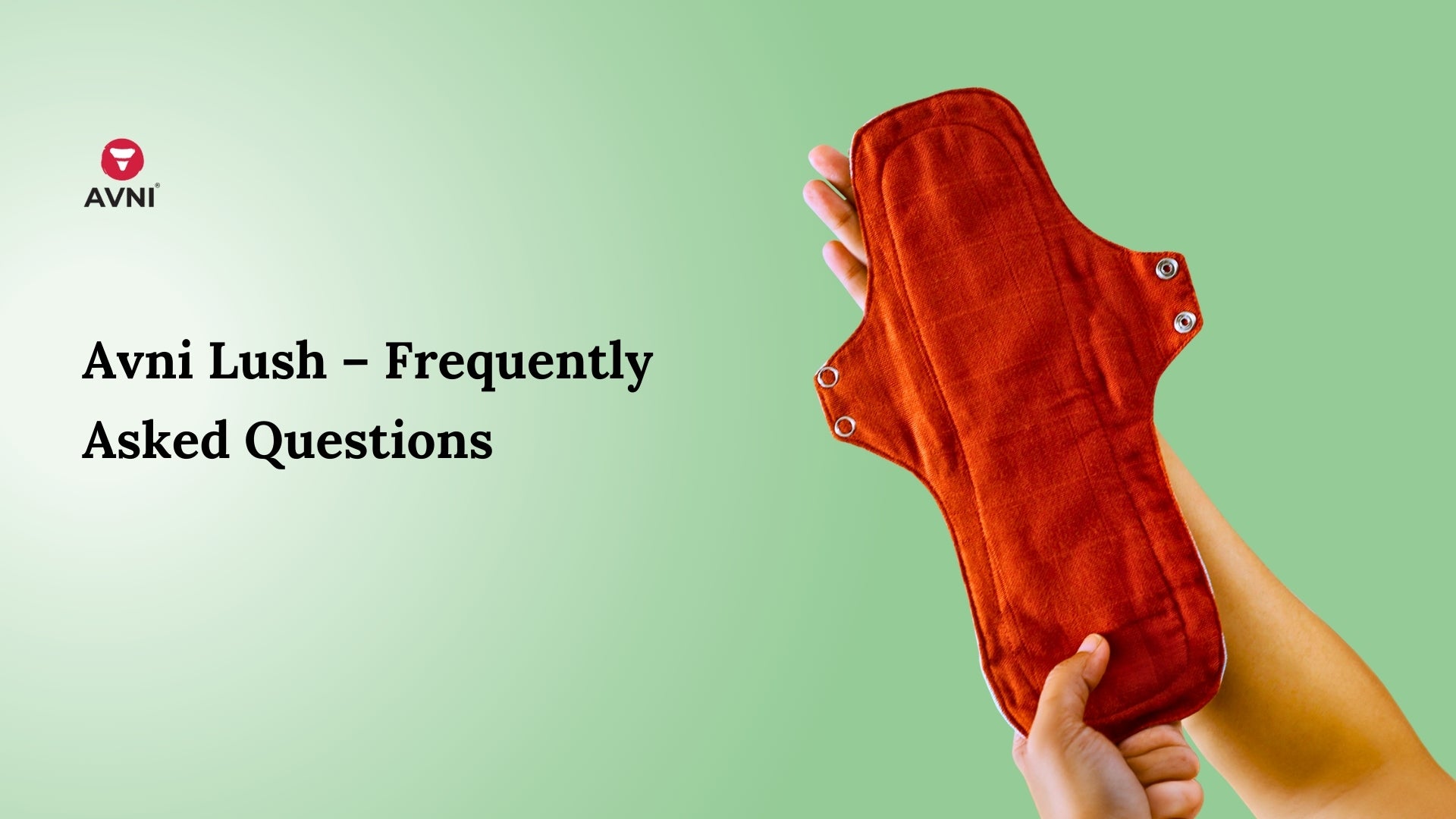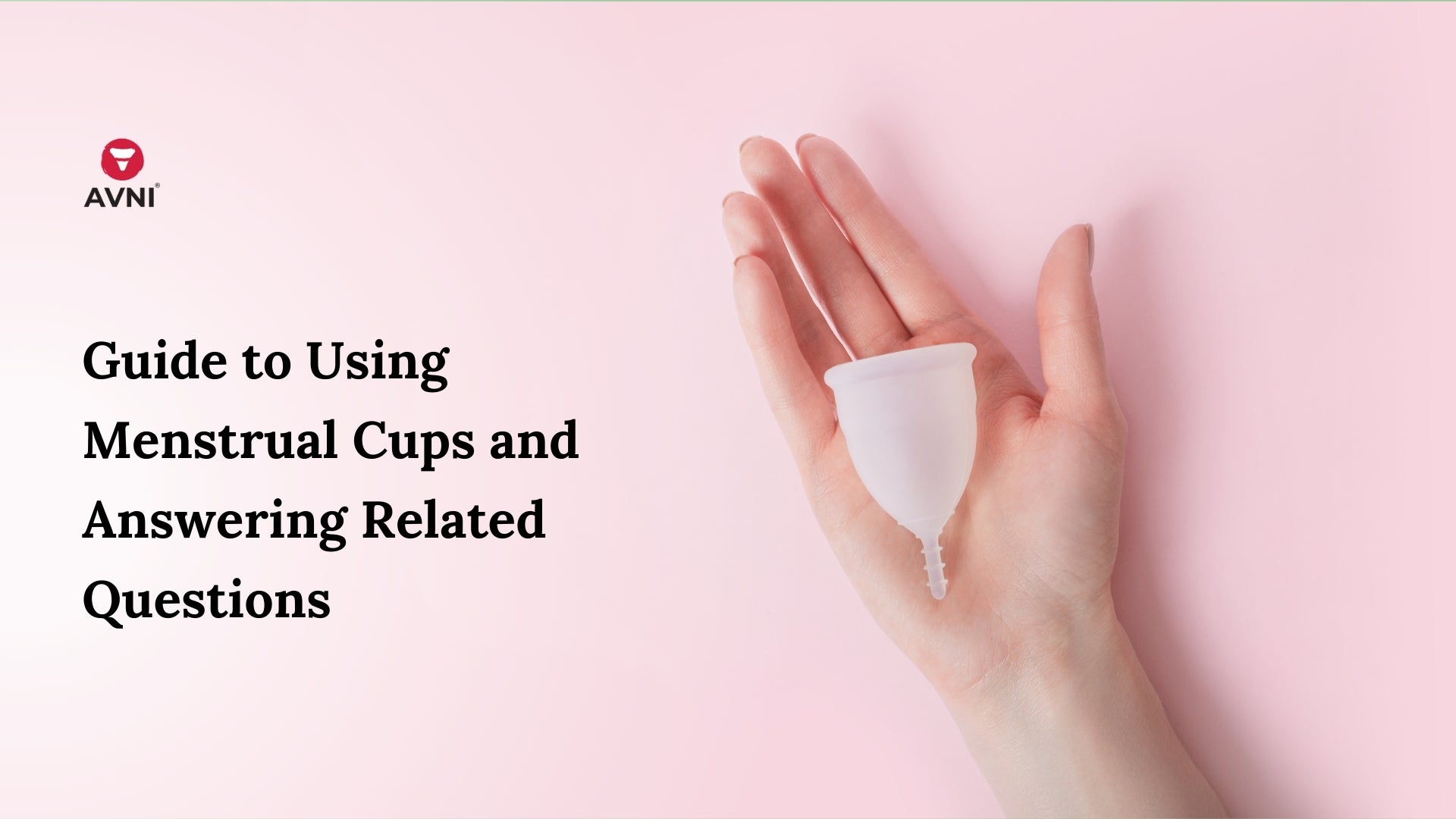
Everything You Need to Know About Irregular Periods
There has been a lot of talk around new ways to manage periods. Social media is filled with the likes of new and innovative products like menstrual cups, discussions about period health, and so much more! While these new products are revolutionary, we are yet to tackle the serious issue of irregular periods.
Following a regular cycle, a healthy body has a menstrual cycle ranging between 25 days to 28 days. It is deemed as an irregular period cycle when the following occur:
- When the cycle goes beyond 35 days.
- When the bleeding lasts for more than a week.
- There is bleeding or spotting in between periods.
- When there is bleeding after menopause.
- When there is bleeding after sexual intercourse.
Why is my periods Irregular?
Due to difference in menstrual activities, irregular periods are classified as follows:
Amenorrhea: Missing the menstrual cycle at least three times consecutively.
Oligomenorrhea: In such cases, the person affected has periods in a cycle 35 days apart.
Menorrhagia: A menstrual situation where there is heavy bleeding for more than a week.
Did You Know? As per recent research, irregular or long periods in adolescence or adulthood have been linked to early death due to cardiovascular diseases.
Possible Causes of Irregular Periods
Do you find yourself checking your period app for irregular flow? If yes, then you are not alone. Oscillation in your body's progesterone and estrogen hormone levels can lead to change in your menstrual cycle.
Some of the major causes of irregular periods are as follows.
Non-Medical Conditions
Stress: Stress disrupts a regular period cycle by intervening in the functionality of that part of the brain that regulates hormones responsible for a healthy menstrual flow. Deep breathing and other stress-reducing techniques can stabilize irregular periods.
Excessive Workout: While working out is good, excessive workouts can interrupt your healthy periods. Strenuous workout regimes often result in exercise-induced amenorrhea, i.e., missing periods due to exercise. When the body is under such immense pressure, which is often combined with low-calorie intake, the hypothalamus stops stimulating the ovaries and you end up missing your periods.
Excessive Alcohol Intake: Excessive alcohol may lead to increased estrogen and progesterone production that can further lead to unexpected or missed periods. Not to mention, regular consumption can also lead to increased water retention as well as terrible cramps.
Medical Conditions

-
Polycystic ovary syndrome (PCOS): During PCOS, the ovaries stray from their original pathway and produce an abnormal amount of male sex hormones - androgens that are usually present in small quantities in the female body. This hormone may prevent maturing of eggs, thus, interrupting ovulation and resulting in either missed or irregular menstrual cycles. Moreover, the said hormonal imbalance can also lead to infertility, obesity, and excessive hair growth & acne.
-
Uterine Fibroids: These are benign lumps on the uterus that lead to excessive menstrual bleeding and can also be very painful. In addition to irregular periods, it is also responsible for painful sex, heavy cramping and frequent urination.
-
Hyperprolactinemia: This is a situation when the body produces copious amounts of a specific protein hormone called prolactin, that disrupts the regular menstrual cycle.
-
Medications: Medications like blood thinners, hormonal drugs, and antidepressants are known to disrupt a normal period flow. You can always talk to your doctor and seek advice to minimize their impact on your menstrual health.
-
Pregnancy: If you are pregnant, your body starts secreting human chorionic gonadotropin (hCG), which indicates your body to stop the period cycle. However, if you conceive around your periods, you might experience light bleeding around that time which is normal.
-
Uncontrolled Diabetes: In cases of uncontrolled diabetes, the high sugar levels in the blood when interacting with the hormones can also lead to irregular periods.
-
Endometriosis: The endometrial tissue is the uterus lining that breaks every month during the menstrual flow. However, this lining grows outside the uterus in endometriosis, often attaching itself to the fallopian tubes or the ovaries and growing on the intestines or other nearby organs. It may rupture from time to time and cause abnormal bleeding and cramps before and after the periods.
-
Other Causes
Cervical cancer
Uterine cancer
Dysfunctional thyroid or pituitary glands.
Pregnancy-related complications
What are the Signs of Irregular Periods?
Does your period app often send you the 'Did you forget to input your period?' notification? Apart from the notification, you might receive other natural signs from your, indicating that your body's menstrual health is not quite what it should be.
Note the following to assess your case of irregular periods.
Presence of Clots: Having clots in your flow is not the sign of healthy periods. Try assessing the size of these to discuss them with your doctor.
The Amount of Flow: If the dates are right, many often consider it a sign of a regular period cycle. However, understanding the flow is also key to look out for irregular periods. Check for dramatic flow fluctuations during your periods, or keep an eye out for extremely heavy bleeding or too light bleeding. These can also be indicative of an underlying medical condition.
Spotting: Spotting is one of the most common signs of irregular periods. These might morph into what may seem as a regular flow, but spotting tends to be either in drops or an extremely light flow.
Effects of Irregular Periods on the Body

Treatment for Irregular Periods

Treatment usually depends on the reasons for irregular periods. However, these home remedies might help you regulate your monthly flow.
P.S. these are backed by science, so you are good.
Load up on Vitamin: Low levels of vitamin D may lead to an increase in period irregularity. Taking a Vitamin D supplement or natural sources like the sun and dairy products can help regulate periods.
Yoga for Irregular Periods: As part of a study conducted in 2013, 126 participants who practiced yoga for 30-45 minutes, five days a week across a span of 6 months, had reduced levels of hormonal imbalance responsible for irregular periods. Certain yoga poses also help with cramps and heavy bleeding as well. Some of the poses you can do are:
Matsyasana (Fish Pose)
Malasana (Garland Pose)
Ustrasana (Camel Pose)
Add Ginger to Your Diet: If you know the Indian palate, you will know that ginger is an important part of the desi cuisine. The vitamin C and magnesium present can help boost the flow. Moreover, ginger is also known to reduce heavy menstrual bleeding as well as regulate intermittent flow.
Work it Out: We know we suggested yoga, but now we have another idea to help you get that regular period flow. Opt for slightly strenuous exercise like running or aerobics that can bring about subtle hormone changes known to intervene in the balance of hypothalamic-pituitary-ovarian connection. It triggers the hypothalamus, sending hormonal signals to the pituitary glands and ovulation to start with the ovulation process.
When Should You Call Your Doctor?
Some cases of disrupted menstrual flow are beyond the home remedial procedures.
The doctor may prescribe drugs to promote fertility like clomiphene, letrozole or injectable fertility meds to induce ovulation.
However, before you undergo the medication, it is important to undergo a complete fertility evaluation to ensure that the options selected are the best and safest ones for you.
Final Takeaway
Irregular periods are a matter of concern that can affect a woman's physical and mental well-being. The current lifestyle is one of the major causes behind the lag in menstrual health, which can be remedied by tweaking a few daily habits. However, it is always advisable to neither self-diagnose nor consult Dr. Google but visit a licensed medical practitioner.
If you have questions or concerns, you can also ask the wonderful community at MyAvni that can help you with expert advice and be your support as you walk the path to good health.
FAQs
What are irregular periods?
When your period cycle is less than 20 days or extends beyond 35 days fairly regularly with symptoms like severe cramps and distress, it is usually classified as irregular periods.
What is the cause of irregular periods?
Irregular periods are often a result of medication, lifestyle changes, mental health, and dietary habits to name a few. Hormonal imbalances also lead to irregular periods.
How do you solve irregular periods?
Some of the ways that can help regulate periods are yoga, healthy lifestyle, optimum weight, intake of vitamins, consuming food items like dates and exercising regularly, to name a few.



Leave a comment
This site is protected by hCaptcha and the hCaptcha Privacy Policy and Terms of Service apply.